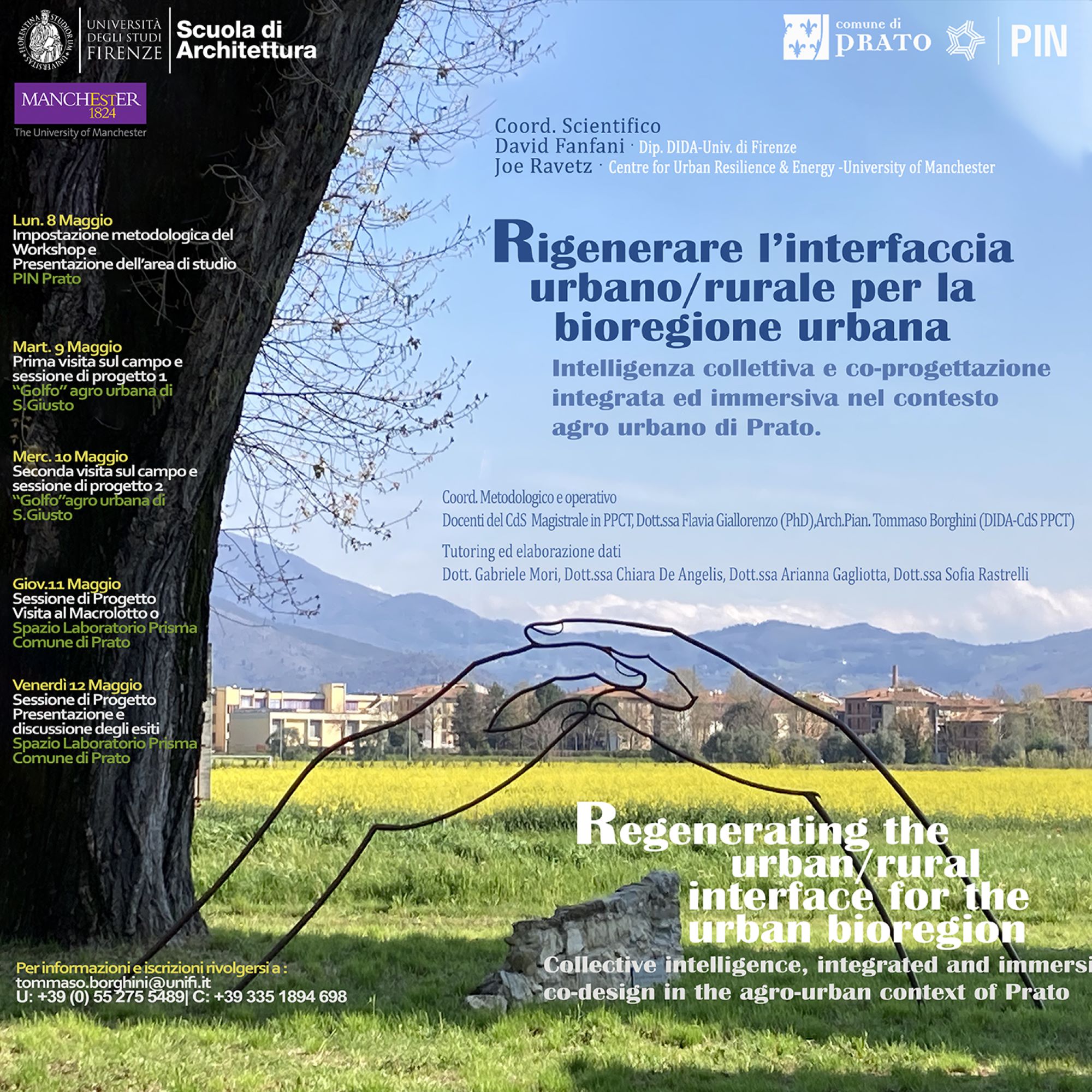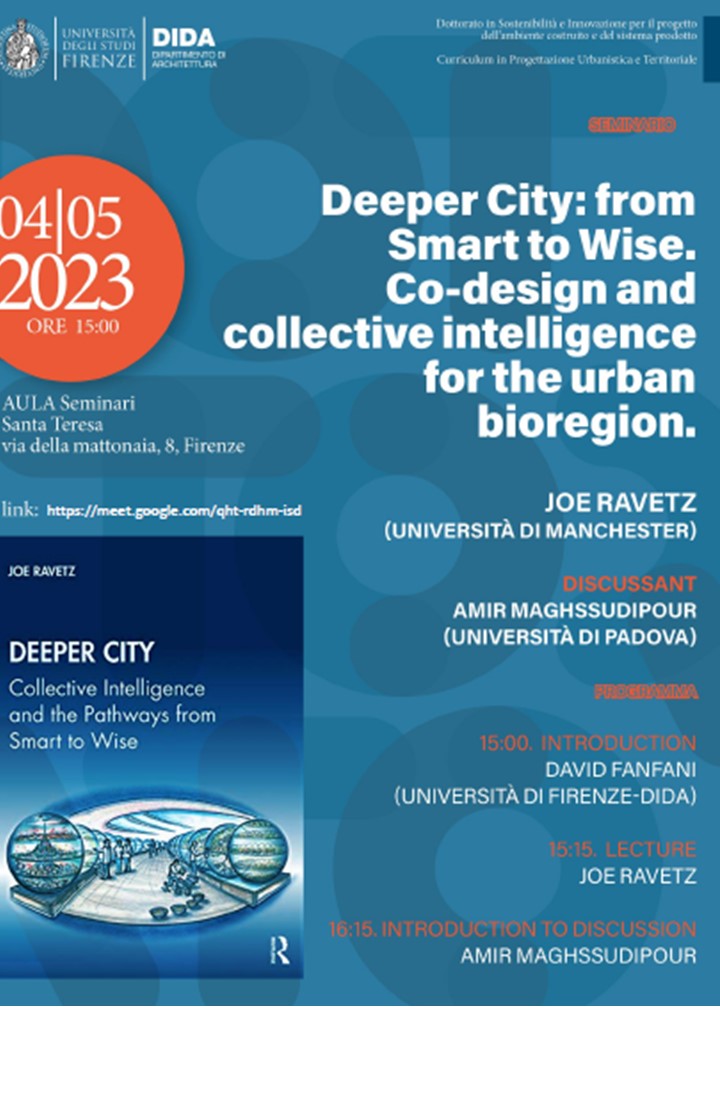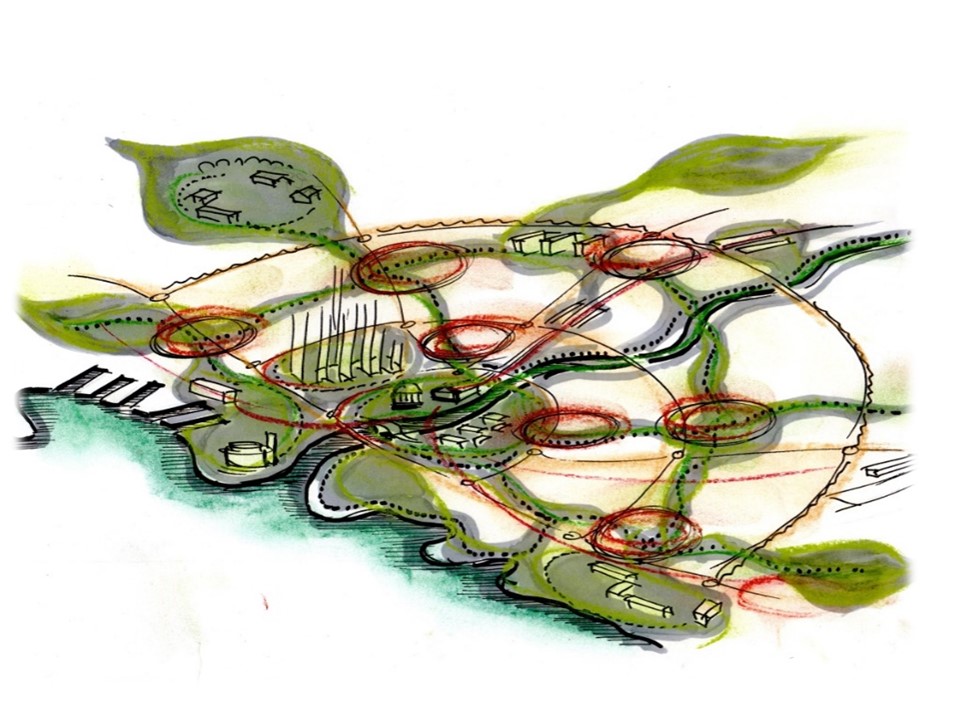Symbio-polis
regenerating the rural-peri-urban interface with the ‘collective bio-regional intelligence’
We focus on a ‘bio-regional’ approach for renewing the links between human & natural systems. The ‘symbio-polis’ is both a city and a civilization, based on a ‘collective bio-regional intelligence’. This brings the keys to turn crisis into opportunity – from inequality and climate extinction, to peace and prosperity.
While the principle is clear, the practice raises many questions…. where is the ‘bio-region’ and who decides: how to distribute resources by markets / other systems: how to balance social justice with ecological priorities: how to balance local needs with international trade, etc.
This workshop is a dynamic ‘Collaboratorium’ – an experimental living lab. We can explore deeper problems & co-design pathways for transformation, where physical / urban design is fully integrated with other systems.

This project is an educational innovation, in partnership with the Dept of Architecture, University of Florence
We are working with a community of students, academics and stakeholders, exploring the ‘collective bio-regional intelligence’ of urban-peri-rural spaces around Prato, Tuscany.
The program runs 8-12th May 2023, with a combination of presentations, field trips, mapping and design processes, and the building of resources for a ‘collective bio-regional intelligence’.
We kick off with a public lecture 4th May 1500 CEST, as on the flyer here –
For times and places see the updated Prato – bio-regional workshop – program
For details contact joe.ravetz@manchester.ac.uk / david.fanfani@unifi.it
For details of the methods and tools see the Pathways toolkit pages
For previous events – Bio-regional 3.0 – 27-05-21 – follow up Bio-regional 3.0 – follow up 27-05-21 – and the The bioregional city – 20-10-21

Inspiration
“We focus on a ‘bio-regional’ approach for renewing the links between human & natural systems – a whole ‘symbio-polis’. This is both a city and a civilization, based on a ‘collective bio-regional intelligence’, which can turn crisis into opportunity – from climate extinction to peace and prosperity.
While the principle is clear, the practice raises many questions…. where is the ‘bio-region’ and who decides: how to distribute resources by markets / other systems: how to balance social justice with ecological priorities: how to balance local needs with international trade, and so on.
This workshop itself is a dynamic ‘Collaboratorium’ – an experimental living lab. We can explore deeper problems & co-design pathways for transformation, where physical / urban design is fully integrated with other systems. To start we ask topical questions:
- ‘What is the system & how does it work’: – the ‘factors’ of cause and effect – food-energy-water: spatial units from household to regional: economic enterprise & investment: technical innovation & digital intelligence: cultural diversity & empowerment, etc…
- ‘Who’ is involved – the ‘actors’ or stakeholders, in systems of ‘agency’ and ‘intention’: public, private, civic, citizens, academics etc.
- ‘Why’ is this a priority: the ‘vectors’ or systems of deeper value and meaning: – social, technical, economic, ecological, political, cultural
For such challenges there are no ‘models’ or ‘apps’ with big data & AI. It’s more useful and meaningful, to explore together the landscape / mind-scape, to map a longer journey of transformation, and design the pathways ahead, based on the synergies between actors, vectors, factors etc.
Application
We can use a variety of methods and tools both on-site and online. The synergistic approach / pathways toolkit provides a set of visual thinking templates, for mapping and design of cognitive systems. The overall aim is to demonstrate & develop a ‘collective bio-regional intelligence’ –
- between the workshop participants,
- for the users / clients / community / region / society around.
Online tools (since 2020) include Mural whiteboards, Kumu system mapping, Padlet platforms, and ‘Playbooks’ – we will demonstrate how these can work.
On-site tools are based on visual thinking and the Pathways toolkit of flexible templates: methods include soft systems mapping, causal layer analysis, role-play mapping, and the over-arching ‘synergistic approach’ to mapping and design for the collective intelligence.
General workshop / collaboratorium principles: (1) everyone has a chance to speak & do something, (b) we aim to turn ideas into action, (c ) we aim for a collective intelligence of learning, co-creation & co-production.

